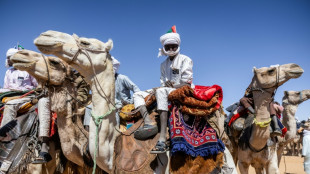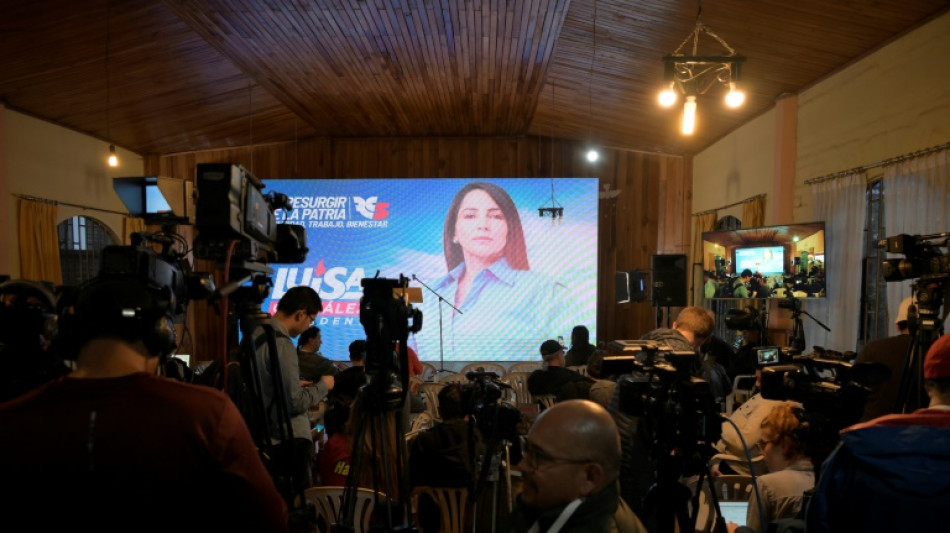
-
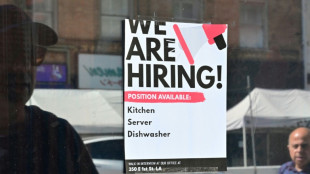 More American women holding multiple jobs as high costs sting
More American women holding multiple jobs as high costs sting
-
Charcoal or solar panels? A tale of two Cubas
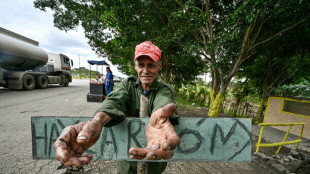
-
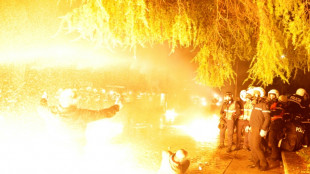 Several wounded in clashes at Albania opposition rally
Several wounded in clashes at Albania opposition rally
-
Chelsea's draw with Leeds 'bitter pill' for Rosenior

-
 'On autopilot': US skate star Malinin nears more Olympic gold
'On autopilot': US skate star Malinin nears more Olympic gold
-
Carrick frustrated by Man Utd's lack of sharpness in West Ham draw

-
 Frank confident of keeping Spurs job despite Newcastle defeat
Frank confident of keeping Spurs job despite Newcastle defeat
-
James's All-NBA streak ends as Lakers rule superstar out of Spurs clash

-
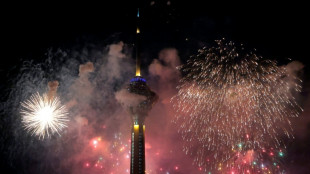 Anti-Khamenei slogans in Tehran on eve of revolution anniversary: social media footage
Anti-Khamenei slogans in Tehran on eve of revolution anniversary: social media footage
-
YouTube says it is not social media in landmark addiction trial

-
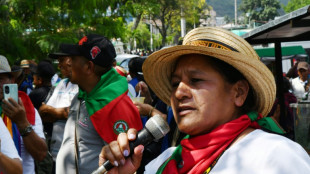 Colombian senator kidnapped, president targeted in election run-up
Colombian senator kidnapped, president targeted in election run-up
-
Britney Spears sells rights to her music catalog: US media

-
 West Ham end Man Utd's winning run, Spurs sink to 16th
West Ham end Man Utd's winning run, Spurs sink to 16th
-
US skate star Malinin leads after short programme in Olympics

-
 Man Utd's Sesko strikes late to rescue West Ham draw
Man Utd's Sesko strikes late to rescue West Ham draw
-
Shiffrin flops at Winter Olympics as helmet row grows

-
 Celtics' Tatum practices with G League team but injury return uncertain
Celtics' Tatum practices with G League team but injury return uncertain
-
Gisele Pelicot publishes memoirs after rape trial ordeal

-
 Newcastle beat sorry Spurs to leave Frank on the brink
Newcastle beat sorry Spurs to leave Frank on the brink
-
'Outrage' as LGBTQ Pride flag removed from Stonewall monument
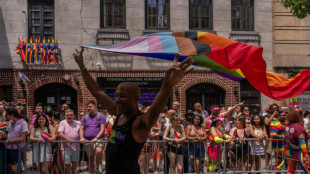
-
 Chappell Roan leaves agency headed by embattled 2028 Olympic chief
Chappell Roan leaves agency headed by embattled 2028 Olympic chief
-
Venezuelan authorities move Machado ally to house arrest
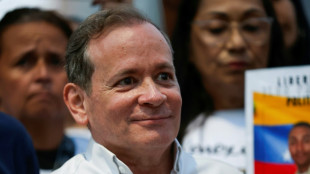
-
 YouTube rejects addiction claims in landmark social media trial
YouTube rejects addiction claims in landmark social media trial
-
Google turns to century-long debt to build AI

-
 'I felt guided by them': US skater Naumov remembers parents at Olympics
'I felt guided by them': US skater Naumov remembers parents at Olympics
-
Till death do us bark: Brazilian state lets pets be buried with owners

-
 Ukrainian athlete vows to wear banned helmet at Winter Olympics
Ukrainian athlete vows to wear banned helmet at Winter Olympics
-
'Confident' Pakistan ready for India blockbuster after USA win

-
 Latam-GPT: a Latin American AI to combat US-centric bias
Latam-GPT: a Latin American AI to combat US-centric bias
-
Gauff dumped out of Qatar Open, Swiatek, Rybakina through

-
 Paris officers accused of beating black producer to stand trial in November
Paris officers accused of beating black producer to stand trial in November
-
Istanbul bars rock bands accused of 'satanism'

-
 Olympic bronze medal biathlete confesses affair on live TV
Olympic bronze medal biathlete confesses affair on live TV
-
US commerce chief admits Epstein Island lunch but denies closer ties

-
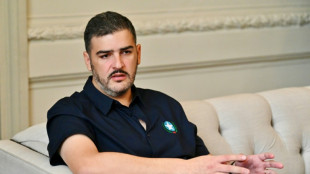 Mayor of Ecuador's biggest city arrested for money laundering
Mayor of Ecuador's biggest city arrested for money laundering
-
Farhan, spinners lead Pakistan to easy USA win in T20 World Cup

-
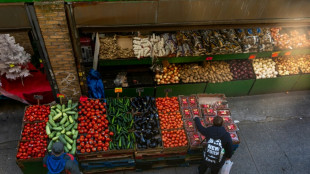 Stocks mixed as muted US retail sales spur caution
Stocks mixed as muted US retail sales spur caution
-
Macron wants more EU joint borrowing: Could it happen?

-
 Shiffrin flops at Winter Olympics as helmet row simmers
Shiffrin flops at Winter Olympics as helmet row simmers
-
No excuses for Shiffrin after Olympic team combined flop

-
 Starmer says UK govt 'united', pressing on amid Epstein fallout
Starmer says UK govt 'united', pressing on amid Epstein fallout
-
Pool on wheels brings swim lessons to rural France

-
 Europe's Ariane 6 to launch Amazon constellation satellites into orbit
Europe's Ariane 6 to launch Amazon constellation satellites into orbit
-
Could the digital euro get a green light in 2026?

-
 Spain's Telefonica sells Chile unit in Latin America pullout
Spain's Telefonica sells Chile unit in Latin America pullout
-
'We've lost everything': Colombia floods kill 22
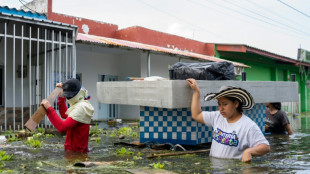
-
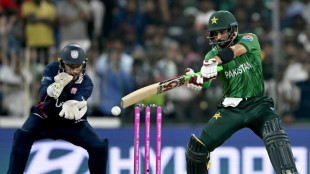 Farhan propels Pakistan to 190-9 against USA in T20 World Cup
Farhan propels Pakistan to 190-9 against USA in T20 World Cup
-
US to scrap cornerstone of climate regulation this week
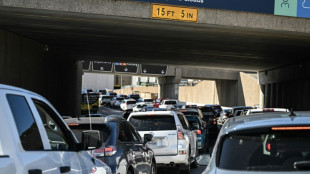
-
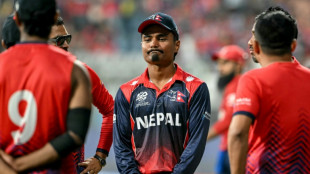 Nepal call for India, England, Australia to play in Kathmandu
Nepal call for India, England, Australia to play in Kathmandu
-
Stocks rise but lacklustre US retail sales spur caution
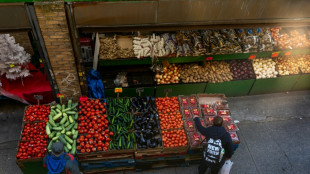

Ecuador journalists under fire as drug war escalates
To do their work of reporting the news -- a crucial job ahead of Sunday's looming presidential election -- many journalists in Ecuador now don bulletproof vests and helmets.
Theirs is not a country at war in the traditional sense, but one caught up in a bloody battle nonetheless -- between rival drug gangs.
Long a peaceful haven between major cocaine exporters Colombia and Peru, the South American nation has exploded in violence in recent years as enemy gangs massacre hundreds in prisons, hang headless bodies from city bridges and detonate car bombs in the streets.
As the conflict between groups with links to Mexican and Colombian cartels has escalated -- with the country's murder rate quadrupling in four years -- three reporters were among the fatalities in 2022, according to NGOs.
Fifteen have received death threats so far this year.
In August, Fernando Villavicencio --a journalist-turned-presidential candidate with a history of speaking out against the cartels -- was assassinated in broad daylight while on the campaign trail.
"It is not easy to do our work with what we are going through," said a reporter in the port city of Guayaquil, at the center of the violence. The journalist had received threats and asked not to be identified.
What is happening in Ecuador today "we had only ever seen in Mexico, and is something very foreign from our reality," said the reporter, who moved homes after becoming anxious that criminals were zoning in on his whereabouts.
Five Ecuadoran reporters are living as refugees abroad.
- 'Growing hostility' -
According to a recent report by Reporters Without Borders, "journalists in Ecuador work in a climate of growing hostility, physical danger and self-censorship, marked by an increase in the power of criminal gangs and drug cartels, as well as an increase in threats, physical attacks and even murders."
In Guayaquil, many reporters go to work in bulletproof vests and helmets, similar to their colleagues covering Russia's invasion of Ukraine or the Israeli-Palestinian conflict.
Coverage around the largest prison complex in Guayaquil is particularly risky. It has been the epicenter of prison clashes in which some 460 inmates have died since February 2021, many beheaded or burned to death.
As an added security measure, journalists have taken to providing fake personal information in bureaucratic procedures "so that organized crime, if it turns its attention to you, will find it a bit more difficult to locate you," said one.
The August 9 assassination of Villavicencio has fueled the fear.
The remaining presidential candidates, Luisa Gonzalez and Daniel Noboa, have reinforced their security, as have the journalists following their campaigns ahead of Sunday's run-off vote.
Prior to his death in a barrage of submachine gun fire, Villavicencio said he had received threats from "Los Choneros," a gang with links to Mexico's Sinaloa cartel and Colombia's Gulf Clan.
Many news outlets avoid reporting on these organizations for fear of becoming targets themselves.
Cesar Ricaurte of the Fundamedios press watchdog told AFP "the pattern of violence" in Ecuador has changed.
While in the past the threat came mainly from state actors -- such as corrupt politicians fearful of being exposed -- it now comes from "organized and common crime," he said.
- 'How toads die' -
In March, five envelopes with USB sticks loaded with explosives were delivered to journalists at different media outlets in Ecuador. One was slightly injured after a device detonated.
Last year, the TV station RTS came under gunfire, and in 2020 a device exploded on the premises of Teleamazonas.
"I’ve been wearing a vest and bulletproof helmet for a month-and-a-half," a photojournalist from Guayaquil told AFP, recounting warnings received while on duty in Duran, a town under gang control.
"They told me: 'watch out, this is how toads die... stop taking pictures, you don't know what you're getting into.'"
In Colombia, the Spanish word for toad, "sapo," is used to denote a snitch.
The Inter-American Commission on Human Rights has also expressed concern for reporters in Ecuador ahead of the election.
The "violence, threats, stigmatization and exile of journalists require extreme efforts to provide protection and guarantees to journalists," IACHR special rapporteur Pedro Vaca said on X, formerly Twitter.
C.AbuSway--SF-PST


